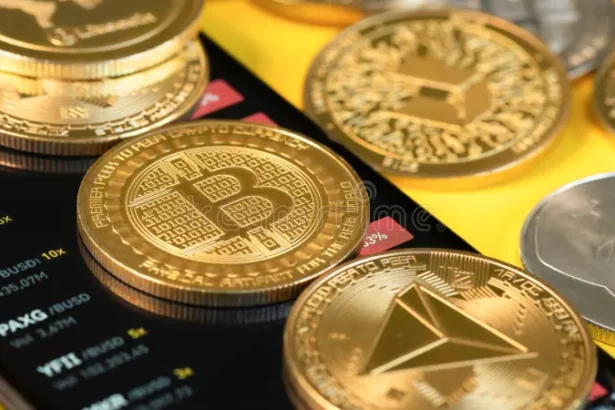Currently, Bitcoin stands as the most valued cryptocurrency available in the market. Not only is it the original cryptocurrency, but it also serves as the industry’s face. The largest issue with Bitcoin, though, is that the most valuable cryptocurrency asset has no one behind it. There is no government, banking institution, or court that would hear your complaint if you lose your Bitcoin.
Thus, one of the main draws for investors looking to get into the cryptocurrency market is the interest in best practices for restoring Bitcoin wallets. Anyone who misplaces their Bitcoin wallet would be curious about how to get their hands on its priceless contents. Let us locate tried-and-true techniques to assist you in regaining your
How Can You Lose Bitcoin Wallets?

The most dangerous tools in the world of cryptocurrencies and blockchain technology are Bitcoin wallets. They have a lot of promise, and as Bitcoin’s value rises, wallets containing the cryptocurrency may become more accessible to hackers. If your Bitcoin wallet is inadvertently lost, you will require a backup to restore functionality. You can avoid such losses by being more aware of the potential causes of Bitcoin wallet loss. It can also assist you in determining the best course of action for recovering your lost possessions. The following are typical causes of lost Bitcoin wallets.
-
Loss of Private Keys
The private key is among the most crucial components of accessing your Bitcoin wallet. Each wallet has a private key, a string of characters used to access and control Bitcoin. Most folks who inquire about things like “How do I recover my lost Bitcoin wallet?” are worried about misplacing their private keys. It’s like losing the keys to your safe and losing your private key. One may misplace their private keys as a result of hardware malfunction, forgetfulness, or data corruption. For this reason, it’s critical to preserve your private keys using safe storage procedures.
-
Death of Bitcoin Wallet Owner
The death of a Bitcoin wallet owner also presents a formidable challenge to the world of digital assets. If the Bitcoin wallet owner has not implemented any measures for estate planning to transfer private key information, then their Bitcoin wallet might become completely inaccessible. It creates difficulty for Bitcoin wallet recovery, as highlighted in various examples. Therefore, it is important to include cryptocurrencies in estate planning or choose Dead Man’s switches for crypto.
-
Sending Bitcoin to the Wrong Addresses
Anyone can send Bitcoins to the wrong address by mistake. Since Bitcoin transactions are irreversible, there is no way to recover the assets from your wallet. Therefore, you should double-check the transaction details before sending Bitcoin.
-
Bitcoin Burn Wallets
Bitcoin wallets can be inaccessible when they are used as burn wallets. The primary purpose of burning wallets is to remove coins from circulation. You cannot think of methods to recover Bitcoin wallet passwords for burn wallets as they don’t offer scope for retrieval. Bitcoin is sent to burn wallets to make them permanently inaccessible.
-
Dormant Bitcoin Wallets
Bitcoin wallets can become dormant when they have not been utilized in any transaction for a long period. There are different reasons for which Bitcoin wallets can become dormant, such as owners losing interest in Bitcoin. Dormant wallets can indicate the removal of Bitcoin from active circulation, which enhances its scarcity.
-
Bitcoin Theft
Bitcoin wallets are not immune to theft. You might have to find ways to restore your Bitcoin wallet when you fall victim to Bitcoin theft. Cybercriminals and hackers use different types of tactics to lay their hands on your Bitcoin wallets. For example, they can use social engineering attacks to trick users into entering their private keys.
-
Frozen Bitcoin Wallets
The most well-liked options for Bitcoin wallets that provide custodial services without the hassle of maintaining your currency are centralized exchanges. The issue with centralized exchanges, though, is that your wallets could be frozen at any time. Centralized exchanges, for instance, can freeze accounts that are thought to be connected to malicious conduct. In these situations, reputable users may also lose access to their Bitcoin wallets as a result of flagging errors or possible hacker security breaches.
How Can You Find Bitcoin on Your Device?
Finding misplaced Bitcoin wallets can have a variety of results, most of which are unclear. It’s critical to keep in mind that Bitcoin wallets differ from traditional wallets in which you keep cash and bank cards. You can only learn about the backup and restore functions of a Bitcoin wallet if you have a thorough understanding of public and private keys. But human error can happen, and you might wind up forgetting that you even have a wallet or giving away your private keys.
You can search for your wallet data on your computer or storage devices if you can’t remember where you put your Bitcoin wallet. The wallet file, which is accessible as “wallet.dat,” contains your private keys, public keys, and transaction history.
-
Windows
Press Win+F. Enter “wallet.dat” in the search window. Make sure that you don’t include the quotation marks.
Now, visit the “Programs and Components” section to find programs with the term ‘Bitcoin’ in their name.
-
Mac
On macOS, you can search for the directory “\/Library/Application Support/Bitcoin/wallet.dat” using the Finder. Furthermore, search for text files whose names contain the terms “Bitcoin,” “key,” “password,” “BTC,” and “wallet.”
How Can You Recover Your Bitcoin Wallet?
Recovering a Bitcoin wallet may appear to be an arduous undertaking. You’re more likely to be angry over losing your priceless possessions if you can’t locate the wallet file. Recovering your Bitcoin wallet password indeed requires overcoming numerous obstacles. These are a few techniques you might attempt to find your misplaced Bitcoin wallet.
-
Find out the Type of Bitcoin Wallet
Identifying the kind of Bitcoin wallet you wish to recover is the first step towards recovering it. You might have chosen a hardware wallet for security reasons or a web wallet for ease of use. In addition, some opt for mobile wallets so they can access their cryptocurrency holdings from anywhere or paper wallets for ease of use. The responses to the question “How do I recover my lost Bitcoin wallet?” may advise you to check Blockchain Explorer for transaction history.
It might assist you in locating hints regarding the type of wallet you utilized for the transaction as well as the wallet address. Furthermore, you can determine the sort of wallet by using known addresses in Bitcoin transactions. Each style of wallet has a different recovery procedure, suggesting.
-
Restore Your Bitcoin from Paper Wallets
Your private keys can be easily stored using paper wallets; all you have to do is write them down on paper and keep them somewhere secure. But the chances of recovering a paper wallet are quite low. A paper Bitcoin wallet cannot be restored. Your only option is to search your device for a duplicate copy of the wallet file or paper wallet.
-
Restore Your Bitcoin from Custodial Wallets
Crypto exchanges offer custodial wallets to hold and trade your cryptocurrencies. You must start by identifying the crypto exchange you used to store your Bitcoin. Custodial wallets on crypto exchanges allow users to access their wallets through traditional methods, such as email addresses and passwords.
Therefore, the Bitcoin wallet recovery for such wallets involves checking your email inbox to find your login credentials. You can follow the password recovery process of the crypto exchange and restore access to your Bitcoin account. However, you cannot follow this process when the crypto exchange has blocked your account.
-
Restore Your Bitcoin Software Wallet
Locating the device that you used the software wallet on is the first step towards recovering it. You likely have your private keys stored in several different computer files. You can also examine anything—like USB drives—that can hold your secret keys. The seed phrase is another crucial response to the question, “How do I recover my lost Bitcoin wallet?” in the context of software wallets. To have the best chance of getting your software wallet back, you must locate the seed phrase on tangible items.
You can use recovery tools to locate the “wallet.dat” file if you don’t have the private keys or the seed phrase. Puran File Recovery, for instance, is a well-liked program for getting misplaced.
-
Restore Your Bitcoin Hardware Wallet
In the case of hardware wallets, you can use your PIN code to restore your Bitcoin wallet. You would only be able to enter the PIN three times, though. Erroneous efforts may result in the device restarting, in which case your wallet may be permanently lost. As a result, only utilize the PIN code technique if you can recall it.
You can utilize the wallet’s seed phrase without the PIN code. The majority of hardware wallets come with a card on which you may write your seed phrase. Try searching for that card or any replicas you may have created. Before you are certain that you have lost it, search everywhere for it. The final option for retrieving your hardware Bitcoin wallet is to physically.
Final Words
Those who believe they have lost their Bitcoin forever can find some hope in the answers to questions on retrieving Bitcoin wallets. Since Bitcoin is decentralized, you cannot retrieve your wallets by contacting the government or the legal system. In addition, the process of recovering the password for a Bitcoin wallet is challenging. However, depending on the kind of wallet you use, you can experiment with several ways to restore your Bitcoin wallet.
For instance, you can locate your software wallet login information by checking your email inbox. When it comes to hardware wallets, the wallet can be recovered using the seed phrase. By making sure that your confidential information is stored safely, you may prevent all of this hassle.






